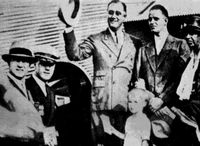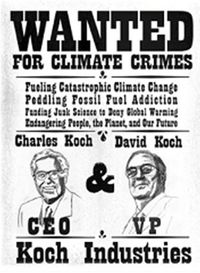 Over the last decade, on this blog, I’ve done a lot of writing which resulted in my generational view of history.
Over the last decade, on this blog, I’ve done a lot of writing which resulted in my generational view of history.
For those new to these pages, a review. It’s history as seen through the eyes of business, because that’s where political power comes from in this country. The business of America has always been business. It’s our Hamiltonian heritage. And it’s still true.
Because America has developed, politically, in relative isolation, since 1788, what happens here is mostly based on what happens here. Europe and Asia had to re-set after both World Wars. Africa still doesn’t rule its own destiny. Most of what happens in Latin America remains a reaction to what we (in our blundering way) have just decided to think, do, or imagine there.
But this country is different. We are less a place than an idea, that idea being that if you accept what we stand for, raise your hand, and take an oath, you’re one of us. This allows America to continually evolve, and to renew itself.
Our Founding generation split politically within 12 years of the Constitution, then ruled for 28 more before the divisions they had papered over required plastering. Theirs was a mostly agrarian society, which fought its political fights over whether it would build the infrastructure needed to industrialize.

Our modern history begins with what many southerners still call “The War Between the States,” which I call “The Recent Unpleasantness.” It was infrastructure that won the Civil War, railroads that brought the nation together after the peace. The Gilded Age was about controlling the assets (land) that allowed the roads to run and bring western commodities to market.
The Progressive Era was also the great era of capital, a time when government and New York made a new compact to organize the utilities – gas, electric, telephone – needed for mass production at a world-leading cost. It’s remembered for its liberal impulse, but all this was done in the name of keeping money flowing, on behalf of sound profitable principles. Crooks wasted money, and it was assumed great bankers could be trusted.
They couldn’t be.

The last era, the era of Nixon, was also the era of oil. America, as a global military power, controlled the resource that drove the rest of the world economy. The cost was high, but the reward was higher, in terms of technology (Apollo, the Internet) that could then be turned into foreign exchange.
We live longer with every generation. The age of Jefferson ran for 28 years, that of Jackson for 32, and that of Lincoln for 36 years. So did that of the Progressives, and of Franklin Roosevelt. No one known early in each era had more than a minor place in the era that followed.

Thus the Age of Nixon ran for 40 years, until the multiple crises of George W. Bush, and his inability to respond by doing anything but saying the same things louder-and-louder, became obvious on the ground. TV gave way to the Internet as our dominant medium, oil gave way to technology as our dominant industry. Barack Obama has surmounted the crisis, and will be remembered by history as a great President for that reason.
Why was his election so close? Why was his re-election also relatively close? For the same reason we’ll likely see a President Hillary Clinton, despite the fact she came into politics in the immediate wake of the Nixon Impeachment, and was First Lady while her husband was building a failed anti-thesis to those assumptions, leaning into a blistering wind from his political right she now uses to justify her own evolution.

Maybe she’ll fool me. Until Republicans accept some elements of the Obama Thesis, they won’t get enough support from technology zillionaires to win a national election. They think they’re the rising tide, because young Democrats have been lazy, and because they’ve been aggressive. They are the falling tide. Republicans die off every day, and are replaced on the rolls by darker, more tolerant, and more technologically adept people. The most likely Republican of 2016, Ben Carson, is in many ways a Republican imitation of Howard Dean, the Democratic failure of 2004. He uses the same technology, and the way he uses it betrays the same failure, an inability to scale its intimacy, to truly build from the bottom-up, except institutionally, through churches.

What’s going to happen as the next election approaches is that some number of these people are going to be activated, because an America that stands against science, against tolerance, and against the Internet is anathema to economic growth in our time. They won’t spend as much money – they’ll mainly buy bits and donate software – but the louder Republicans shout, the higher their technology deficit will grow. It’s not a wall like that of biblical Jericho they can take down with shouting. They also won’t become a majority again until they do acknowledge the legitimacy of technology’s political imperatives.

They are? Acceptance of science, tolerance of others, an understanding that government has a role in building infrastructure, that our human infrastructure matters most of all, and that we have a shared destiny with everyone else on this planet, which will throw us off like a virus until we address the climate crisis that now stands, like Vietnam, Hitler, or the Confederacy, before us.
The climate war has begun. If 1932 began the Greatest Generation’s crisis, it’s 1939 on my children’s calendar.
And the other side’s blitzkrieg is being launched.










